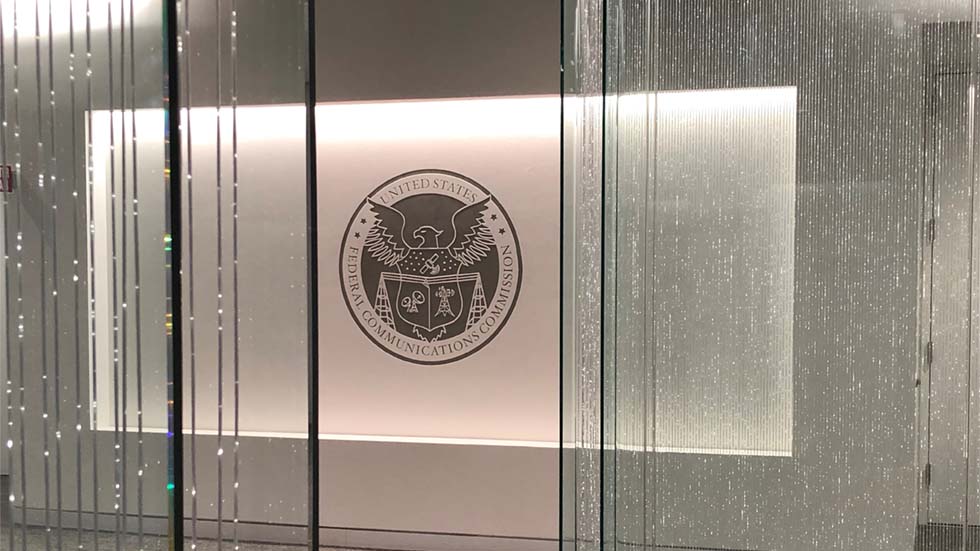FCC to Lift Freeze on Applications for New LPTV, TV Translator Stations
The move is part of a phased process running into 2026 that will also lift the current freeze on major changes for Class A television, low power television and TV translator stations and permits

WASHINGTON—The Federal Communications Commission's Media Bureau has announced that the agency is initiating a phased process to lift the current freeze on major changes for Class A television, low power television (LPTV), and television (TV) translator stations, in its entirety, and as part of the same process permit the filing of applications for new LPTV and TV translator stations.
Applications for new LPTV stations have been frozen since 2010. The new Public Notice starts a process that will lift the freeze on LPTV applications, "opening the door for stations to file for new displacement relief and technical changes", according to the Advanced Television Broadcast Alliance, which represents LPTV stations.
As part of the process for opening up those applications, the FCC will initially freeze certain applications. The FCC said that these freezes are necessary in order to provide a stable database for stations to prepare for the filing of major modification applications.
In a Public Notice, the FCC highlighted the following dates for the phased process and the procedures that applicants must follow when filing during these opportunities:
- September 3, 2025. Temporary application filing freeze for all major change 11:59 p.m. ET applications for Class A, LPTV, and TV Translator stations.
- October 15, 2025. Temporary application filing freeze for all minor change 6:00 p.m. ET applications (including displacement applications) for Class A, LPTV, and TV translator stations.
- October 22, 2025. Expanded opportunity for Class A, LPTV, and TV 12:01 a.m. ET translator stations to file major change applications, with relocations limited to no more than 121.0 kilometers (km). Freeze on all minor change applications (including displacement applications) for Class A, LPTV, and TV translator stations is also lifted.
- December 3, 2025. Temporary application filing freeze for all major change 6:00 p.m. ET applications for Class A, LPTV, and TV translator stations.
- January 14, 2026. Temporary application filing freeze for all minor change 6:00 p.m. ET applications (including displacement applications) for Class A, LPTV, and TV translator stations.
- January 21, 2026. Resumption, without limit or restriction, of filing of 12:01 a.m. ET Class A, LPTV and TV translator major change applications and acceptance of applications for new LPTV and TV translators stations. Freeze on minor change applications (including displacement applications) for Class A, LPTV, and TV translator stations is also lifted.
The FCC also described four phases of the process.
Phase 1: Temporary Major and Minor Modification Filing Freezes
While most major modifications are currently frozen, in August 2024 the Bureau lifted its freeze on major modifications, with certain restrictions, in order to permit Class A, LPTV, and TV translator stations to file for channel changes. Effective at 11:59 p.m. ET, on September 3, 2025, the Bureau reinstituted a freeze on all applications for major changes for Class A, LPTV, and TV translator stations. In addition, at 6:00 p.m. ET, October 15, 2025, the Bureau will institute a freeze on all minor change applications for Class A, LPTV, and TV translator stations and displacement applications for LPTV and TV translator stations.
The professional video industry's #1 source for news, trends and product and tech information. Sign up below.
The FCC said that these freezes are necessary in order to provide a stable database for stations to prepare for the filing of major modification applications.
Phase 2: Expanded Major Modification Filing Opportunity
The FCC said that In order to allow existing Class A, LPTV, and TV translator stations to modify their facilities to better serve their viewers and adapt to market changes since application freezes were implemented on such changes, the agency will provide existing stations an opportunity to file major modification applications prior to new station applications.
Beginning at 12:01 a.m. ET, October 22, 2025, the the FCC said it will lift the major modification application filing freeze and accept, on a first-come, first-served basis, applications for all major changes to Class A, LPTV, and TV translator stations including those that propose relocations of no more than 121.0 km from the station’s antenna reference coordinates. At 12:01 a.m. ET, October 22, 2025, the Bureau will also lift the temporary freeze on all minor modification and displacement applications.
The FCC said it was imposing a distance limit on major changes in order to ensure that existing stations are able to implement facility modifications that maximize service to their existing viewers and markets before its permits new station applications or moves by existing stations that practically amount to a new station.
Phase 3: Temporary Reinstitution of Major and Minor Application Filing Freezes
The FCC said that at 6:00 p.m. ET, December 3, 2025, all applications for major changes for Class A, LPTV, and TV translator stations will once again be frozen. At 6:00 p.m. ET, January 14, 2026, the Bureau will also institute a temporary freeze on all minor change applications for Class A, LPTV, and TV translator stations and displacement applications for LPTV and TV translator stations.
The FCC said these freezes are being reinstituted in order to provide a stable database for stations to prepare for the complete lifting of the freeze on major modification applications and for applicants to prepare for the opportunity to seek new stations.
Phase 4: Resumption of Minor and Major Modification Filings and Commencement of Filing For New LPTV and TV Translator Stations
Beginning at 12:01 a.m. ET, January 21, 2026, the FCC reported that it will lift the freezes and begin accepting, on a first-come, first-served basis, all major change and minor change applications (including displacement applications). At the same time, the agency will lift the freeze and begin accepting, on a first-come, first-served basis, applications for new LPTV and TV translator stations. The acceptance of applications for new Class A stations is limited by statute and therefore applications for new Class A stations will not be accepted during this filing opportunity, the agency explained.
The FCC said that these filings opportunities will remain available indefinitely unless the Commission determines that a new freeze is warranted. Applications filed during this opportunity may not propose facilities that would cause impermissible interference to other authorized full power, Class A, and LPTV/translator stations, including valid construction permits for same, and any earlier-filed application for new or modify facility including earlier-filed applications for minor change, the FCC stressed.
The FCC noted that the nationwide window for new LPTV and TV translator stations was initially set for January 25, 2010, but later postponed to July 26, 2010, and then postponed indefinitely. Because of this, the agency said that it believed it is appropriate to permit both unrestricted major modification applications and new station applications at the same time, just as would have been allowed should the new station opportunity have proceeded in 2010.
Details on the filing and processing procedures are available in the full Public Notice here.
George Winslow is the senior content producer for TV Tech. He has written about the television, media and technology industries for nearly 30 years for such publications as Broadcasting & Cable, Multichannel News and TV Tech. Over the years, he has edited a number of magazines, including Multichannel News International and World Screen, and moderated panels at such major industry events as NAB and MIP TV. He has published two books and dozens of encyclopedia articles on such subjects as the media, New York City history and economics.

